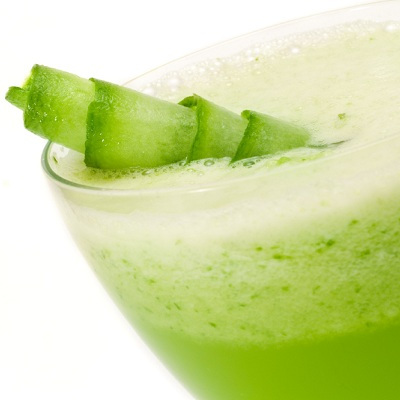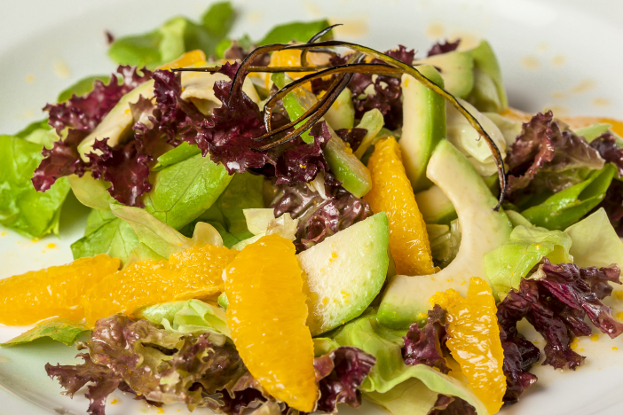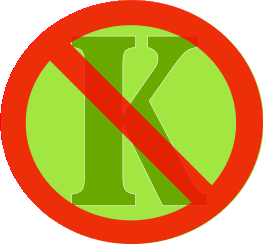
AYURVEDIC FOODS
     5 ratings, 274 likes 5 ratings, 274 likes
Customer Reviews4.80 out of 5 stars     Sign in to review this food Sign in to review this food"I don't understand why Dr. Lad and others recommend a lassi drink right after eating as a digestive aid if, as he says..." - Anne,      Table of ContentsHow Does This Ayurvedic Food Improve Wellness?
CLINICAL AYURVEDIC REVIEW
Staying Hydrated: Ayurveda's Approach to the Essence of Life Water is the essence of life. Without it you cannot go on living. In fact, the sheer volume of water on Earth is what makes this planet unique. But how much do you really need? And when is enough simply enough? Proper hydration is essential for health and thus a somewhat controversial topic. Although modern medicine claims that more water is better, the ancient Ayurvedic texts discourage drinking large amounts of water, and recommend a more individualized approach to fluid intake.The average person loses 3-4 liters (about 10-15 cups) of fluid a day. This may seem like a lot, but when you consider that sweat, urine, breathing and bowel movements all contribute to loss of fluids, the numbers start to make sense. Water vapor in the breath alone is responsible for 1-2 liters of water loss a day. Exercise, illness and other factors can significantly increase the rate of water loss. As your fluids drop, it causes blood volume and blood pressure to drop too. Once pressure drops below a certain threshold or the concentration of salt becomes too high in your body, your brain triggers thirst. That means a high salt diet could make you more thirsty. Swelling, inflammation, and water retention could also make you drink more water than normal. Absorption of fluids by dry foods like corn chips & granola bars could deplete fluid levels as well. DehydrationDehydration can be the source of much dis-ease in the body. It can cause poor circulation, poor digestion, and fatigue. There are two types of dehydration, extracellular and intracellular. Extracellular dehydration is a result of the total amount of blood fluids dropping below a certain threshold. This type of dehydration happens outside and independently from the cells and is usually due to lack of fluid intake. Intracellular dehydration occurs when the concentration of sodium in the blood is too high, encouraging water migration out of cells due to osmotic pressure. This type of dehydration can be caused by an excess amount of sodium in the diet and a lack of electrolytes in the body.You may be dehydrated if you notice one or more of these signs and symptoms:
What about my urine? Dark yellow urine is a sign of dehydration. Clear urine is either a sign of too much water or kidney flushing. When water and electrolytes are balanced, and the kidneys are functioning properly, the urine will be a light yellow color. Water & Digestion Adequate hydration is the essential ingredient that makes digestion work. Fluids form the backbone of digestion and water provides the medium for all enzymatic activity. Dehydration makes it impossible for your stomach to secrete the two-thirds of a liter of hydrochloric acid it needs to digest a meal. Drinking warm water 20-30 minutes before eating can improve digestion by up to 24%. Make a habit of drinking a glass of warm water every morning to warm up your blood and gently wake up your digestive organs. "Water before a meal is nectar. It replenishes fluids and encourages juicy digestive organs. Small sips during a meal is honey. It helps turn the food into a sauce. Water after a meal is poison because it dilutes stomach acids." - Dr. Vasant Lad 
How much water should I drink?This depends on the individual. Blood that is rich in sugars, fats, salt and proteins, typical of a Kapha, also has a lower osmotic pressure that tends to encourage water retention. The blood's thickness also obstructs the kidneys' ability to extract fluids from the blood. Kapha people should thus limit water consumption to 4-6 glasses a day and also employ diuretics such as parsley & celery as regular dietary supplements or herbs such as dandelion or punarnava.Conversely, thin, deficient blood (typical of Vata) has the opposite effect encouraging leaky kidneys. Vata individuals may also be chronically dehydrated no matter how much water they drink due to kidney flushing. To thicken the blood Vata should eat more sweet taste, including carbohydrates, fats, and proteins. A wedge of lime and a pinch of salt in warm water helps Vata people retain more fluids, along with anti-diuretic herbs such as Licorice root. Vata people should drink 8-10 glasses of water a day and should avoid diuretic foods. Pitta imbalanced individuals lose water and electrolytes quickly through sweat, urine, and loose stools. They should increase their water consumption (6-8 glasses a day) and make sure to fortify it with electrolytes. Can I drink too much water? Yes. Ever get the feeling that drinking too much water has become an addiction, that your mouth is dry no matter how often you tip the bottle, and that you pee like crazy but still feel thirsty? When you drink too much water, you pee too much, which also depletes your electrolytes. Electrolytes help you retain water, keep your palate moist, and truly quench your thirst. Once you've lost them in your pee, you feel dehydrated. Clear urine is a clear sign the modern epidemic of overhydration could be drying you out. Modern medicine, TV ads, and bottled water companies all tout the advantages of adequate hydration. In addition to these nuggets of wisdom, it's important to know when enough is enough. Too much water also makes your stomach feel bloated and heavy, and overburdens digestive organs. When should I drink water? An easy routine to prevent dehydration is to drink a glass of water when you wake up, a 1/2hr before meals, and before you go to bed. If you tend to get dehydrated, you might also want to drink a glass of water between meals. A soup-based diet also helps to keep a person hydrated. 
What should I drink?Soups, broths & teas
Chronic dehydrationSome people are chronically dehydrated no matter how much water they drink. These individuals tend to pee clear urine within a 1/2 hr after drinking a glass of water. The most common causes of chronic dehydration include stress, cold weather, and kidney flushing.
Dehydration, stress & cold weather Stress and cold temperatures cause the blood vessels to constrict. The constriction of blood vessels is called vasoconstriction. Much as squeezing a balloon raises the air pressure inside the balloon, vasoconstriction causes blood pressure to rise. The kidneys are one of the organs that regulate constant blood pressure. They release water from blood circulation into the urine to compensate for the increase in blood pressure, deflating the baloon. The result is dehydration. Taking steps to de-stress your life and wearing warm, appropriate clothing in the cool months can thus help to prevent dehydration. Kidney flushing Kidney flushing occurs when the kidneys flush toxins from the blood into the urine, resulting in a higher than normal urine output. Often poor digestion can be the source of toxicity. Poorly digested food tends to ferment in the intestines. As bacteria ferment the food, they release toxic metabolic waste products into the gut. The intestines, engineered to absorb nutrients, also absorb some of the toxin into the bloodstream. This is a great reason to keep your digestive tract in peak health. There are also herbs that help prevent kidney flushing and reduce loss of fluids. Try Sensitive Stomach Tea, found at: (https://www.joyfulbelly.com/Ayurveda/products/Sensitive-Stomach-Tea:-Calm-Digestion/199) Lack of thirst Sometimes weak digestion and excess stress can prevent you from noticing when you are thirsty. The sensation of thirst also diminishes in adults over fifty years old. If you have trouble recognizing thirst you should pay careful attention to signs of dehydration and take in adequate fluids as necessary. Water makes me feel full. Some people feel full after drinking a small quantity of water. This may be due to weak digestion and insufficient acid production in the stomach. Ayurveda says "It takes a fire to get thirsty." To increase digestive capacity, drink a glass of warm water with a wedge of lime or lemon, a pinch of salt, and a slice of ginger. SourcesYour Body's Many Cries for Water
https://www.watercure.com/faq.html Tony Robbins' Book: Unleash the Power Within [Charaka Su 5:13] [Ashtanga Hrdayam. Su 5:15-17] Learn about the health benefits of water for FREEYou'll receive free access to our entire website including healthy recipes, nutritional diet plans, medicinal uses of ingredients, & ayurvedic health tips. Sign in once and you can use our website indefinitely..browse recipesIs Water Good for My Ayurvedic Diet?Find out by taking this free, easy quiz. You'll learn your body type, and whether 'Water' is a good fit. Complete the basic quiz in 1 minute, or go deeper with additional quizzes at your own leisure to learn more about your body.AYURVEDA'S GUIDE TO VITALITY & WHOLESOME NOURISHMENTYour Ayurvedic diet is tailored to your individual body and your specific imbalances. With an Ayurvedic diet you feel joy and satisfaction because what you are eating truly nourishes and balances you. Disease results from diets and lifestyles that are incompatible with your nature. By eating a personalized diet matched to your body, you experience optimal health. See How it Works.SERVING SIZE: 1 c Metabolic Nature of Water
Foods with a Similar Nature to WaterHoney Dew Honey Dew has these Actions in CommonRebuilds-fluids, Relieves-burning, Quenches-thirstJackfruit Jackfruit has these Actions in CommonRelieves-burning, Quenches-thirst, Rebuilds-fluidsSummer Squash Summer Squash has these Actions in CommonQuenches-thirst, Relieves-burningJaggery Jaggery has these Actions in CommonQuenches-thirst, Rebuilds-fluidsCoconut Water Coconut Water has these Actions in CommonQuenches-thirst, Rebuilds-fluidsOrange Orange has these Actions in CommonQuenches-thirst, Internal-detoxicantCucumber Cucumber has these Actions in CommonInternal-detoxicant, Quenches-thirstCherry Cherry has these Actions in CommonQuenches-thirst, Rebuilds-fluidsGhee Ghee has these Actions in CommonRelieves-burning, Internal-detoxicantGrapefruit Grapefruit has these Actions in CommonInternal-detoxicant, Quenches-thirstHerb Supplements with a Similar Nature to WaterRed Clover Red Clover has these Actions in CommonInternal-detoxicant, Rebuilds-fluids, Relieves-burningAmalaki Amalaki has these Actions in CommonInternal-detoxicant, Quenches-thirst, Rebuilds-fluidsKanakasava- Breathe Alive Tonic Drink Kanakasava- Breathe Alive Tonic Drink has these Actions in CommonInternal-detoxicant, Rebuilds-fluidsAmritarishta (Amrutharishtam) Amritarishta (Amrutharishtam) has these Actions in CommonQuenches-thirst, Relieves-burningChyavanprash Nutritive Jam Chyavanprash Nutritive Jam has these Actions in CommonRebuilds-fluids, Internal-detoxicantLicorice Ghee (9oz) Licorice Ghee (9oz) has these Actions in CommonRebuilds-fluids, Relieves-burningLicorice Root (Yastimadhu) Licorice Root (Yastimadhu) has these Actions in CommonRebuilds-fluids, Relieves-burningStay hydrated / avoid dehydration Stay hydrated / avoid dehydration has these Actions in CommonRebuilds-fluidsPotassium Salt (Salt Substitute) Potassium Salt (Salt Substitute) has these Actions in CommonRebuilds-fluidsEnema Therapy Enema Therapy has these Actions in CommonInternal-detoxicantBlue Flag Root Blue Flag Root has these Actions in CommonInternal-detoxicant
Joyful Belly is a recognized school of biocharacteristics medicine. TRADITIONALLY INDICATED FOR THESE SYMPTOMSWater may be beneficial for these symptoms. The suitability of any food for a condition is highly dependent on the individual. Please see your doctor before using this food to treat a medical condition.View Other Ingredients for Autumn-WinterWater is recommended for Autumn-Winter. Check out these other Autumn-Winter foods here.HOW DOES EATING AYURVEDICALLY MAKE YOU FEEL?Eating Ayurvedically makes you feel nourished and energized. Food digests with ease when right for your body type (dosha). Healthy digestion is seen as the cornerstone of well-being in Ayurveda. Healthy digestion generally prevents illness. If you do get sick, a strong digestive fire reduces the severity of illness and increases your resilience. It also improves your mood. Once you begin eating Ayurvedically, you will feel refreshed, vital and strong.Clinical Tools & Resources
About the Author John Immel, the founder of Joyful Belly, teaches people how to have a healthy diet and lifestyle with Ayurveda biocharacteristics. His approach to Ayurveda is clinical, yet exudes an ease which many find enjoyable and insightful. John also directs Joyful Belly's School of Ayurveda, offering professional clinical training in Ayurveda for over 15 years.John's interest in Ayurveda and specialization in digestive tract pathology was inspired by a complex digestive disorder acquired from years of international travel, as well as public service work in South Asia. John's commitment to the detailed study of digestive disorders reflects his zeal to get down to the roots of the problem. His hope and belief in the capacity of each & every client to improve their quality of life is nothing short of a personal passion. John's creativity in the kitchen and delight in cooking for others comes from his family oriented upbringing. In addition to his certification in Ayurveda, John holds a bachelor's degree in mathematics from Harvard University. John enjoys sharing Ayurveda within the context of his Catholic roots, and finds Ayurveda gives him an opportunity to participate in the healing mission of the Church. Jesus expressed God's love by feeding and healing the sick. That kindness is the fundamental ministry of Ayurveda as well. Outside of work, John enjoys spending time with his wife and 7 kids, and pursuing his love of theology, philosophy, and language. Comments & Impressions of 'Water'Do you like 'water'? Why or why not? What makes it unique? Is there something else you'd like to know about 'water'?     (4.80 out of 5 stars) 5 ratings, 274 likes (4.80 out of 5 stars) 5 ratings, 274 likes     Sign in to review this food Sign in to review this food
Overall, this is a great article--but it leaves the very important questions of municipal water additives: chlorine, flouride, chemicals added to keep pipes in good shape, etc., along with pharmaceuticals and pesticides that pour with municipal water from your faucet into your glass--unanswered. Rather than buying bottled water: purchasing filtered water that you refill your own containers with, or buying and installing your own home filter (ask the right questions to make sure how well these filters work) would seem to be the much wiser and safer choice. I am one of many people who does not see the EPA as a credible organization, and I would need to know a lot more about the AWWA before choosing to believe them either.
I don't understand why Dr. Lad and others recommend a lassi drink right after eating as a digestive aid if, as he says in the quote, water after a meal is poison because it dilutes stomach acids? Thank you for clearing up a lot of mystery around water intake.
Great article. I have always read n the Ayurvedic books that water is a no-no at meal time and yet I feel that i want and need some water with my meal. I'm a V/P. I am going to start the water 5 bites in and see if my digestion improves. Thanks for the info.
Anne, if I understand correctly, a lassi drink actually encourages stomach acid, or at least, provides a more acidic environment (since it's diluted yogurt). If it's spiced, it's better still since it adds more 'fire' to the liquid as well. If it was just plain water, it's just that: pure element of water, and what does water do? Put out fires, granted that it's enough to do so. So, by adding the yogurt, you're imparting more fire (from the sour/acidic effect) to the liquid. Spices will add even more, so this would be an excellent digestive aid for vatas.
|
Join Joyful Belly.
Want our top Ayurvedic recipes and health tips?Subscribe to our free newsletter!



 On MeWe
On MeWe On Pinterest
On Pinterest On Facebook
On Facebook On Twitter
On Twitter On WhatsApp
On WhatsApp On Email
On Email CREATE A RECIPE WITH IT
CREATE A RECIPE WITH IT COMPARE IT
COMPARE IT








